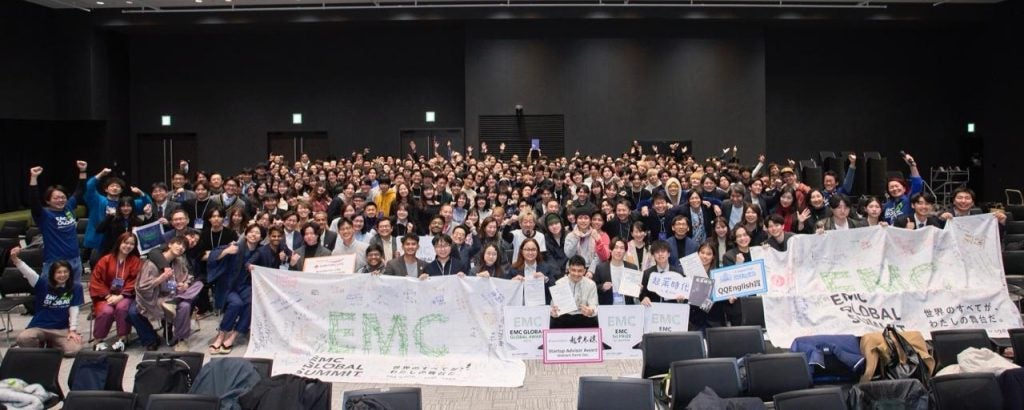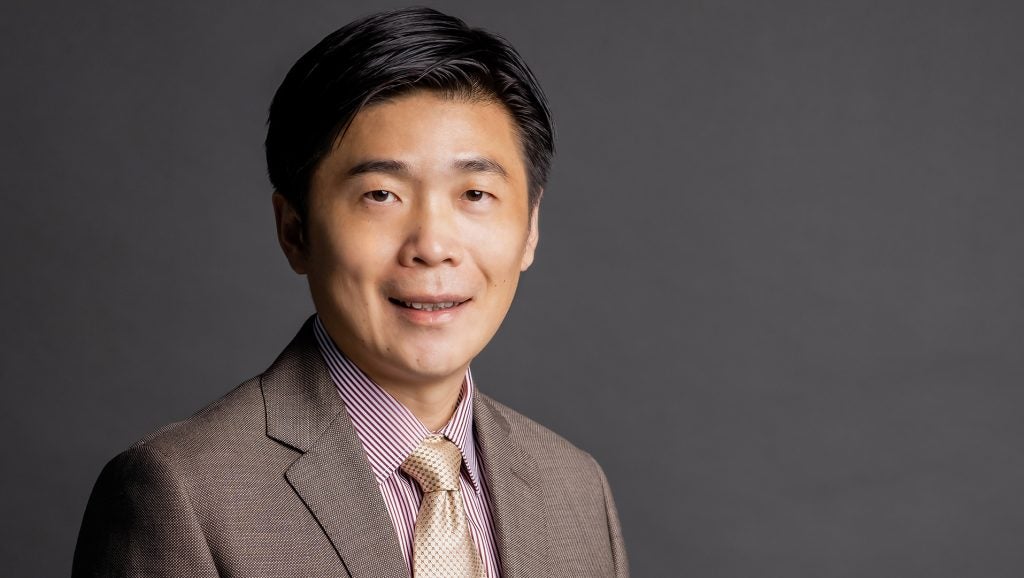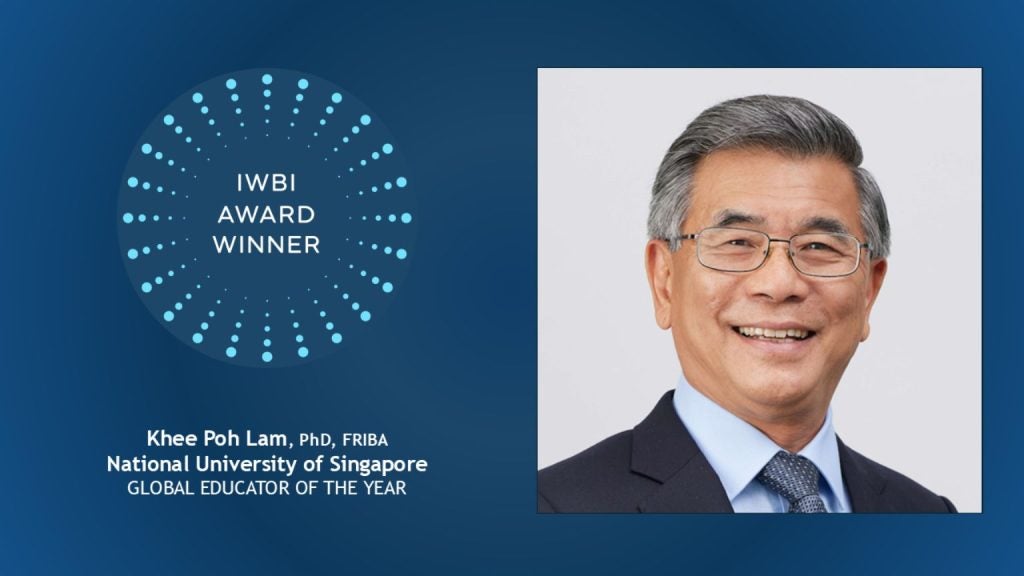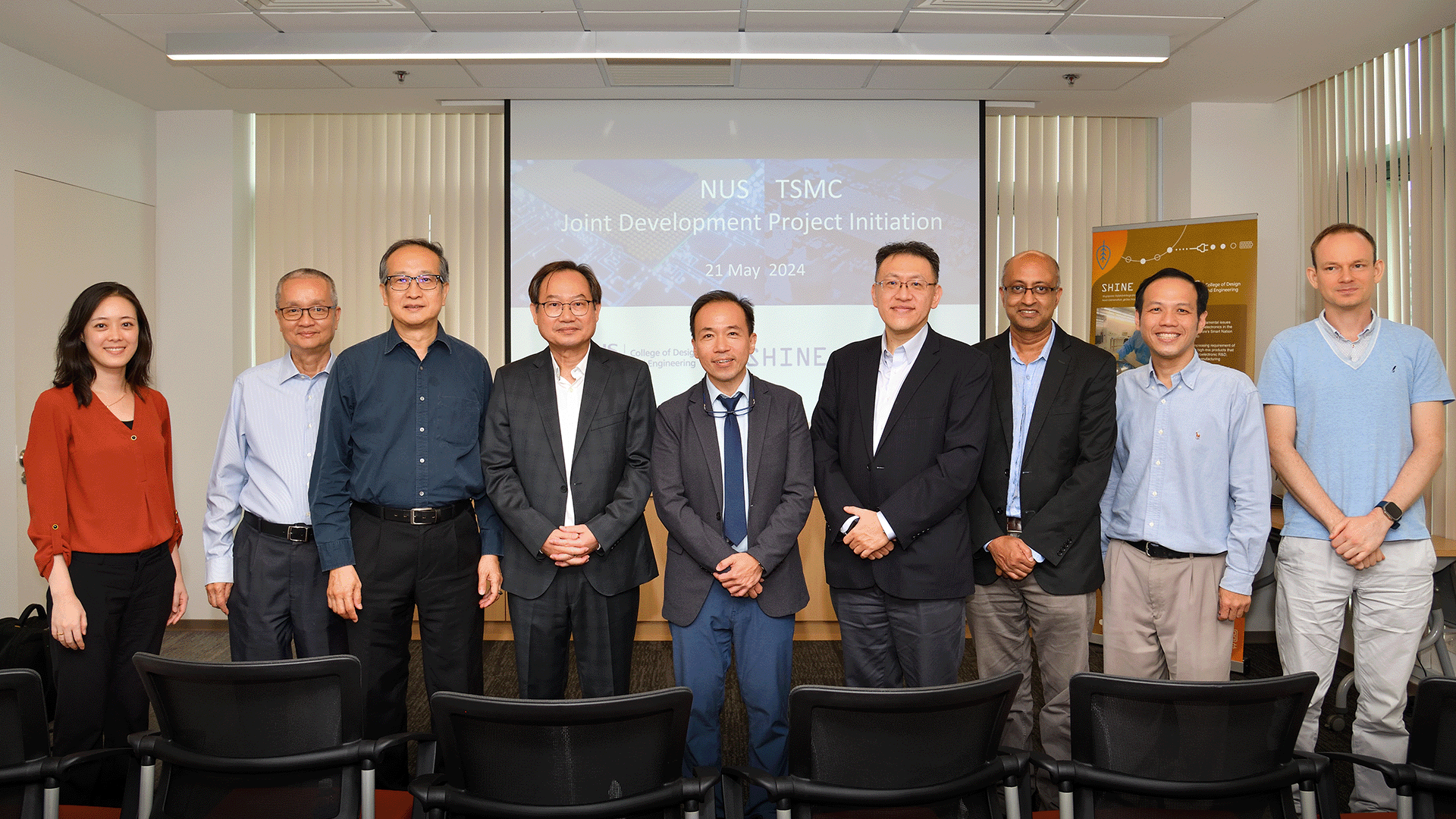
The Singapore Hybrid-Integrated Next Generation µ-Electronics (SHINE) centre at CDE and global semiconductor giant TSMC recently held an event at NUS to mark the start of a formal research collaboration between the two institutions. The NUS-TSMC Joint Development Project Initiation, held on 21 May, took place in the presence of senior faculty from CDE, PhD students, researchers and guests from TSMC.
Opening the event, Professor Aaron Thean, the Director of SHINE, said he hoped the initial two joint projects agreed between the two institutions would lead to a process of deeper and extended collaboration in the future.
“Talent is important to TSMC and also to NUS,” said Prof Thean, who is also NUS Deputy President (Academic Affairs) and Provost, “so I hope that through these collaboration projects we will continue to grow to a bigger scale, including potential joint professorships. This will help our faculty spend time in industry and possibly expand beyond microelectronics.” He added: “I look forward to learning from these projects and grooming the talent pool to benefit both institutions.”
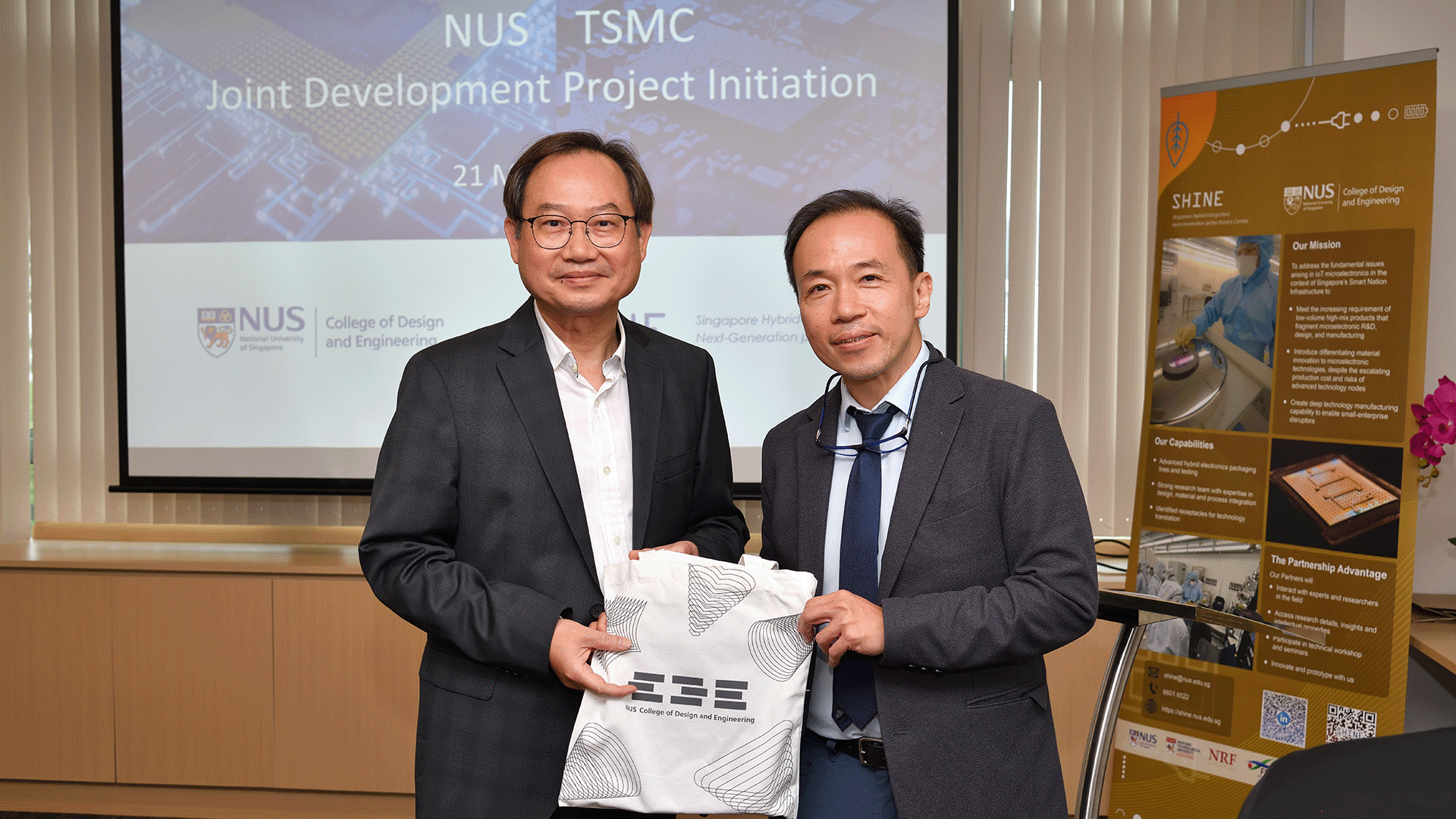
The two joint development projects launched between SHINE and TSMC are titled:
- Advanced freeform optical waveguide coupled with facet microlens development and testing - led by Professor Lim Yeow Kheng (Electrical and Computer Engineering), SHINE Programme Director.
- Thermal management solution for high-power wafer-level testing through thermoelectric system - led by Prof Thean with Assistant Professor Sunmi Shin (Mechanical Engineering) as co-investigator.
Among the guests at the event were Dr Marvin Chang, Director, University Programs, Corporate Research at TSMC, and Dr Wang Chuei-Tang, TSMC’s Technical Director, Advanced Packaging Technology and Service.
In his speech, Dr Chang said working on new collaboration projects with a top university like NUS was an honour, adding that he saw great potential for further and deeper cooperation in the near future.
Dr Wang, in his own address at the event, noted that the fast-expanding world of data-hungry AI applications meant there is huge global demand for new generations of high-performance, low-power semiconductors. “How to make these low-energy chips, systems, and algorithms to save power will be critical for the future of technology,” he said.
The event then had briefings on the aims and objectives of the two initial joint projects given by Prof Lim and Dr Evgeny Zamburg (SHINE Senior Research Fellow).
In his address, Prof Lim also gave an overview of the SHINE Centre, emphasising its role in fostering disruptive innovation, enabling academia-industry co-research, and supporting small-scale spin-offs through partnerships with industrial players. He also introduced the new Master of Science in Semiconductor and Technology Operations as part of SHINE’s commitment to talent development with semiconductor manufacturers.
Subsequently, Dr Zamburg presented the group's research on Thermal Management Solutions, including work on innovative heat spreading, absorption, and radiation materials conducted in collaboration with A*STAR and Soitec.
The event concluded with a tour of SHINE’s lab and facilities, giving guests further insight into SHINE’s research work.
Established in 2021, SHINE is a research and development centre hosted by CDE that works to develop next-generation hybrid-integrated (flexible and rigid) microelectronics.



